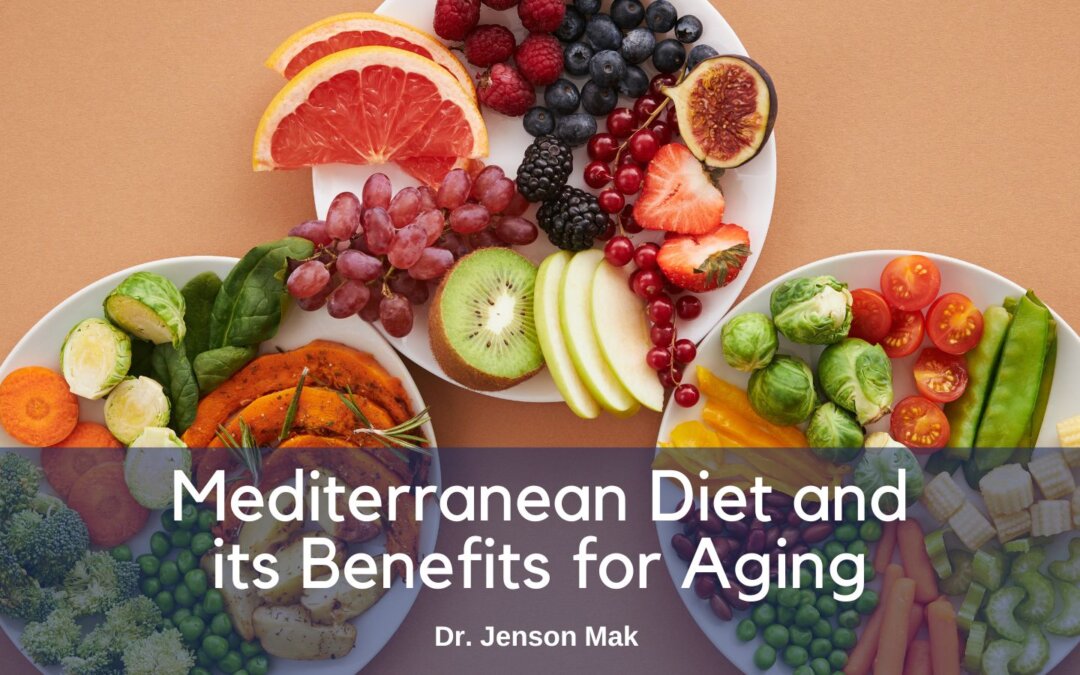Maintaining good health becomes increasingly important as people age, and diet plays a crucial role in how the body ages. The Mediterranean diet, inspired by the eating habits of countries bordering the Mediterranean Sea, has gained popularity for its numerous health benefits. Rich in fruits, vegetables, whole grains, olive oil, fish, and lean meats, this diet has been hailed as one of the best ways to promote healthy aging.
What is the Mediterranean Diet?
The Mediterranean diet is a heart-healthy eating plan that focuses on plant-based foods, healthy fats, and lean proteins. Unlike fad diets, it’s more of a lifestyle than a strict regimen. Key components include:
- Healthy Fats: Primarily from olive oil, nuts, and seeds.
- Whole Grains: Such as brown rice, oats, and quinoa.
- Vegetables and Fruits: Rich in vitamins, minerals, and antioxidants.
- Lean Protein: Particularly fish and poultry.
- Limited Red Meat and Processed Foods: Reducing unhealthy fats and added sugars.
This diet emphasizes natural foods, encouraging minimally processed food consumption while prioritizing fresh, nutrient-rich ingredients.
The Mediterranean Diet and Aging
As we age, our bodies experience various changes, such as a decrease in muscle mass, slower metabolism, and a higher risk for chronic diseases. Fortunately, the Mediterranean diet offers several benefits that can help mitigate these effects and support a healthier aging process.
1. Cardiovascular Health
One of the Mediterranean diet’s most well-documented benefits is its ability to support heart health. It is rich in heart-healthy fats, particularly omega-3 fatty acids found in fish like salmon and sardines. These fats help reduce inflammation and lower the risk of heart disease, stroke, and high blood pressure—conditions that often worsen with age.
2. Improved Brain Function
Studies have shown that the Mediterranean diet can enhance cognitive function and reduce the risk of neurodegenerative diseases, such as Alzheimer’s and dementia. The abundance of antioxidants from fruits, vegetables, and olive oil helps protect brain cells from damage, while omega-3s found in fish are essential for maintaining healthy brain function as we age.
3. Bone Health
As we age, bone density decreases, making older adults more prone to fractures. The Mediterranean diet, rich in calcium from leafy greens, dairy products like yogurt, and vitamin D from fish, can help maintain strong bones and reduce the risk of osteoporosis.
4. Weight Management
Maintaining a healthy weight becomes more challenging with age due to a slower metabolism and reduced physical activity. The Mediterranean diet emphasizes portion control and nutrient-dense foods, making it easier to manage weight without feeling deprived. Focusing on whole grains, fiber-rich vegetables, and healthy fats helps individuals feel fuller longer, reducing overeating and promoting healthy digestion.
5. Longevity
People who follow the Mediterranean diet tend to live longer, healthier lives. The diet’s emphasis on nutrient-dense, anti-inflammatory foods significantly extends life expectancy and improves the overall quality of life for older adults.
Conclusion
The Mediterranean diet is more than just a way of eating—it’s a holistic approach to long-term health. For aging adults, its benefits extend beyond mere weight loss or heart health; it offers a pathway to a healthier brain, stronger bones, and overall well-being. By focusing on natural, unprocessed foods, those who adopt the Mediterranean diet can age gracefully while reducing the risk of many age-related illnesses.

